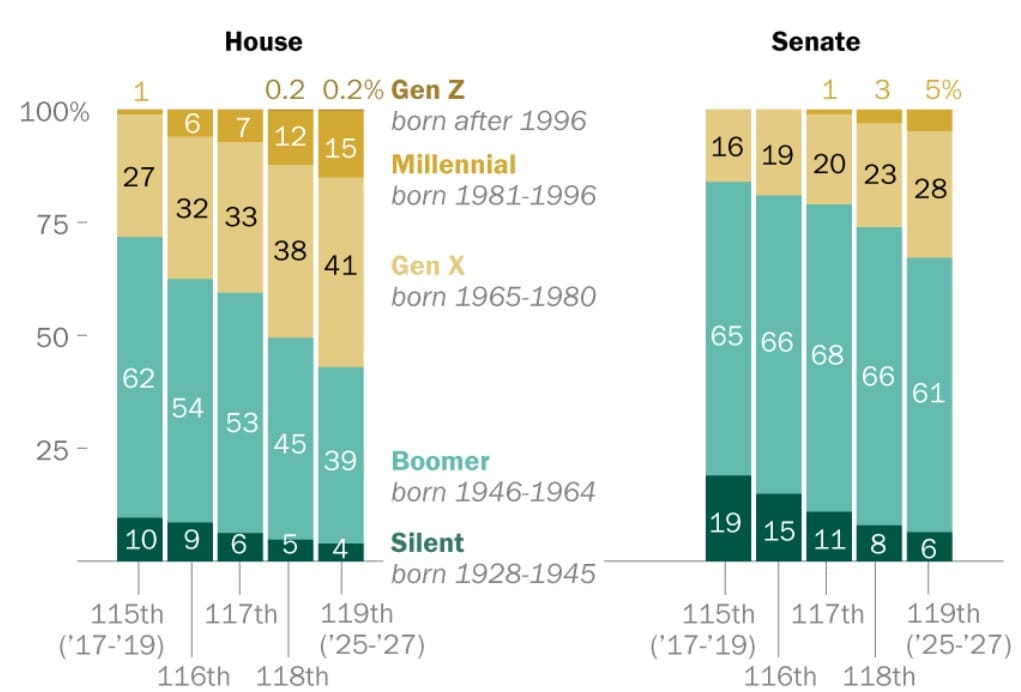Research Shows Congress Is Getting Younger, But No Less Divided

Pew Research Center published 7 facts this week about the changing face of Congress in the 119th session. On top of an increase in diversity, the research center found Congress is also slightly younger.
Pew's data shows that the median age of the 119th Congress is 57.5 in the House (among voting members), compared to 57.9 at the start of the 118th Congress two years ago. So, it’s younger – but not by much.
The 119th Congress also marks the first time in recent congressional sessions members in the Baby Boomer generation don't make up a majority or a plurality. Gen X members make up 41% of the US House.

The Senate is a different story. The majority held by Boomers may be shrinking, but they still hold 61% of the seats in the upper chamber.
However, while Congress may look different, the hyper-polarized environment between the Republican and Democratic Parties remains. In fact, worsening polarization has played a significant role in the changes seen in Congress.
During the 118th session, approximately 60 members announced they would not seek re-election, which is an unprecedentedly high number for a single congressional session – especially since most members are all but guaranteed reelection.
Since approximately 90% of US House districts are safe for the majority party in that district, the current system ensures protection for nearly all incumbents. So why have so many members chosen to quit all of a sudden?
There are a number of factors at play, but one of the biggest reasons is the increasing partisan divide.It doesn't matter what party has control of Congress. The divide between them is so wide that words like "compromise" and "cooperation" can lose someone their seat.
This has left the Legislative Branch in a state of perpetual gridlock on issues that matter to voters.
Former Republican US Rep Ken Buck criticized his own party for being "obsessively fixated on retribution and vengeance for contrived injustices of the past" when he announced his resignation in November 2023.
Democratic US Rep. Mike Quigley hasn't left Congress, but in 2023 he warned that continued gridlock "isn’t just an inconvenience; it leaves our nation vulnerable. It shows the world – allies and enemies – that we can’t govern."
And while the many resignations voters have seen over the last few years have allowed new candidates to emerge, things continue to get worse -- because the incentive to scorn the "other side" remains.
Many of the people elected to replace retiring or resigning members of Congress are elected under the same partisan primary system, where their biggest hurdle to election is winning a low-turnout party primary.
If they can secure a win in the primary, they essentially win the election outright. There are only a handful of cases where members of Congress have to face serious and real competition in a general election.
Congress may look more diverse. It may look a little younger. But nothing is going to change as long as the incentive is for members to cater solely to their party's base and party leaders who could threaten their seat with a primary challenge.
 Shawn Griffiths
Shawn Griffiths





